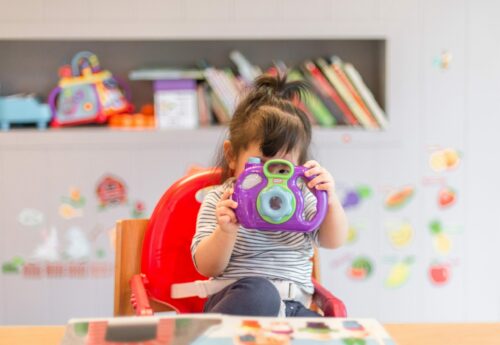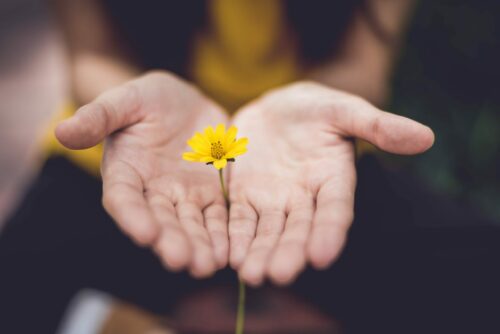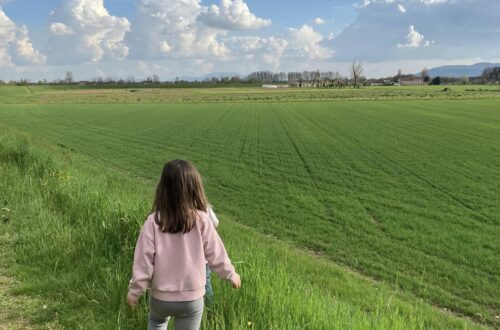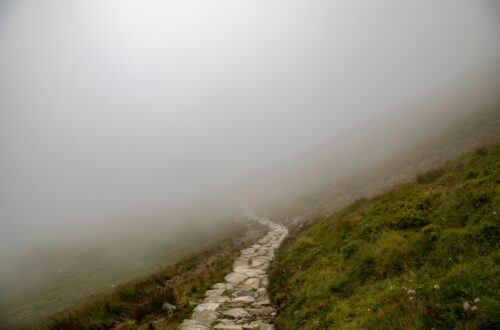When it comes to kids and sex ed, there seems to be a lot up for debate. But I think if there’s one thing I think many people could agree on, it’s the fact that no young child should be exposed to pornography. In fact, the deliberate exposure of a child to sexual material is a form of child abuse.
Most parents don’t want their five, six, seven, or even ten year old exposed to adult content.
What that tends to result in, in many Christian families, are parents who pretend like pornography doesn’t exist. They put what they feel are necessary safeguards in place to protect their home and children. Then they hold on to “the talk” like it’s a bomb that has to be detonated at just the right time or else everything is ruined.
I’ve been speaking in the field of pornography addiction and struggle for over ten years now and, for a while, I did parent education workshops. As I’ve done interviews for my book, Quenched, the question has often come up:
How can parents protect their children from pornography?
Here are three things I wish parents would know.
1- Pornography is not the same as lust.
We need to understand that pornography and lust are not synonymous. This is hard because the narrative for adults is pornography is a sin of lust. We consider a married person’s porn use the same as cheating. Among adults, we address the issues of pornography, fantasy, masturbation, etc under the umbrella of lust.
But that’s adults (or at least young adults). Adults who know better. Adults who are consciously aware of their choices. Adults who even understand what sexual lust is (because lust isn’t in and of itself always sexual).
But when we’re talking about children, especially young children, it is important to separate lust and pornography. Why? Because for young children, lust is not their motivator.
Pornography is an external product.
Lust is an internal posture.
This is helpful for parents because it creates a shift in our minds.
If I discover my daughter is watching, reading, or listening to pornography (because there’s a new wave of porn that’s like porn podcasts), at nine years old, and my mentality is that porn and lust are bedfellows, I’m going to react to the wrong root. I’m going to start treating my daughter like she struggles with lust and that likely isn’t the case. I might overreact and cut her off from friends who I think are being a bad influence. I might start making rules about clothes and things that don’t apply to what she’s dealing with.
I’m going to address the issue from a sin angle and try to uproot a sin that she doesn’t even struggle with. Doing so can cause feelings of shame for both her and I. After all, I don’t want my friends thinking my nine year old is a floozy.
Do you know what the motivation is for many young children to return to pornography? Not lust. Not sexual deviance.
Curiosity.
Children are naturally curious. My three year old never stops asking me why. She has whys for the whys. Young children are taking in their world. If pornography gets introduced to them (intentionally or not) their natural response is to seek to understand it to the best of their young understanding.
So, I encourage parents to view pornography as a predator. Stop viewing it as a sin issue for your elementary school aged children. It isn’t. How can that shift in perspective change your reaction?
2- Don’t take it personal.
Raise your hand, moms and dads, if you’ve ever uttered one of these phrases:
“How could you do this to me?”
“What have I done wrong?”
“I’m such a failure.”
Parenting is certainly not easy and, for many, it feels like a high and daunting calling. For Christian parents, we may feel a need to protect our children from every dark and sinister temptation the world has to offer, especially pornography.
I think you would be hard pressed to find a parent who hasn’t been affected by pornography in some way. They may have or have had their own struggle with it or they may have been seriously wounded by someone else’s struggle with it.
Perhaps you are a mom who grew up in a home with a dad and brothers who were steeped in pornography. You watched it rip apart your parents’ marriage and wreck your brothers’ relationships. Or you’re the husband whose wife still struggles with pornography.
These wounds can cause us to be rather passionate about protecting our children from the same effects. When our best efforts of protection fail and we find our kids have been watching pornography, it can feel like a knife to the heart. We get angry with our kids or ourselves and start to build walls.
But these are actually some of the sign posts of shame (more on those in my book, Quenched, and the book The Cry of the Soul by Dan Allender).
Do not view your child’s exposure to or indulgence in pornography as a personal attack against you.
Is pornography damaging? Yes. Is it frustrating when pornography slips past your best defenses? Yes. Is your kid out to get you? Probably not.
Again, remember that for most young children, curiosity kills the cat. They really aren’t sitting around daydreaming ways to break your heart. It might feel like it some days!
Have you completely failed them if they get exposed to pornography? No! Children are remarkably resilient and when you are able to interact with them in a way that addresses the actual issue (curiosity) and not make it about you, you can actually help them navigate through this faster and you set your relationship up for future success. They will start to see you as a safe place to be able to have hard, even disappointing, conversations. But if you steep it in shame and guilt-trips and talks about lust, you are not helping.
Shame doesn’t make us make good choice; it makes us lie about our bad ones.
If pornography has been a source of pain or trauma in your own story, I encourage you to work through that with the help of a licensed counselor. The pain is real but your child is not responsible for it nor are they destined to repeat it.
3- Silence doesn’t protect innocence.
You’ve probably heard this before, but when it comes to pornography, it’s often not a matter of if but when your child will be exposed to it. That doesn’t mean we don’t try to protect them!
What it does mean is that protection doesn’t look like silence.
I’ve encountered this in countless families and churches, this idea that we need to keep silent to protect innocence. I served as a Sunday school teacher for high school girls and the pastors in that church asked me not to talk about my story because they didn’t want to expose some of the girls unnecessarily. Meanwhile, the other girls in the class were talking about how they snuck out back and slept with a youth group guy or gave some guy from the school oral sex in the church sanctuary.
Because I wasn’t “allowed” to discuss sex or pornography in our class, the only voice these girls were hearing on the matter was that from their friends. Their parents thought by silencing me they were saving their children, but in reality, they weren’t saving anyone. And that’s with teenagers.
Silence gives parents a false sense of security.
Here’s the thing: You, mom and dad, are not and have never been your child’s only source of information. Even my three year old has alternate sources of information: her Sunday school class, kids at the playground, people she overhears in a restaurant, her babysitter, her grandparents, the family who lives next door, and so on.
Just because you aren’t talking about something doesn’t mean they aren’t hearing about it.
When it comes to young children, this is a problem, because what you may not realize is kids award “expert points” to whoever tells them something first. If Susie’s first grade classmate tells her the world is flat and offers some proof, you are going to be hard-pressed to convince your child otherwise, unless she’s already been exposed to the idea that the world is round.
In other words, you protect their innocence not by keeping your mouth shut but by being the first to the punch. Don’t just assume your kid will “know better.” They don’t “know” anything. They are learning, and it’s your job to teach them. They can’t “know better” unless you’ve TOLD them.
The problem parents run into is that they think of any conversation about sex as some sort of super deluxe all or nothing atomic bomb of a conversation. Then they get all nervous about when is the right time to drop this on their kid. Too early, and you scar them for life. Too late, and you’ve missed your window.
But conversations about human sexuality, pornography, gender, identity, sex, lust, and so on don’t have to be an all or nothing atomic bomb. They can be natural, as-needed conversations.
Silence nurtures shame. You think your silence is communicating “I love you and I’m trying to protect you” but all your kid hears is “you can’t talk to me about this, go ask someone else.”
You will do yourself a huge favor as a parent if you stop sweating and stressing over “the talk” and just let your child lead the need for the conversation. It’s not a bomb you drop. It’s answers you have to their questions. Set yourself up as someone with answers and a willingness to talk not as someone with borderline anxiety about sex and who refuses to even utter the word until your kids have a driver’s license.
The reality is the landscape of the world is changing. Kids have access to pornography younger and younger and are being exposed at alarming rates. It’s scary as a parent. Even as a parent who speaks and teaches in this field, I feel unprepared to help my daughters navigate the world that waits for them. That’s why listening to them and being in conversation with them is so important. There’s no other way for me, or you, and any parent to know the depth and bredth of what their kids are facing. There’s no way for us to know what questions they have. There’s no other way for them to know they can come to us for answers and help.
The only way for me to truly combat the influence pornography can have on their lives and to protect them is for me to be actively involved with them. To be educating them. To be in conversation with them, understanding what they are seeing, hearing, and experiencing from sources outside of our home.
As parents, we can’t afford to sit back and assume our internet filters are enough. We can’t assume our silence is helpful. We can’t live in fear, paralyzed by our own pasts with pornography and trauma.
One of the best things we can do for our children, in addition to doing our best to protect them, is to be a safe place for them to come to when all of our protection fails.
Some helpful resources for parents:






